Greenhouse Gas Emissions
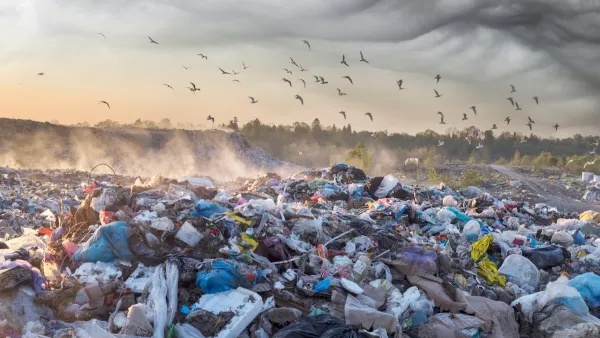
Colorado Landfills Emit as Much Pollution as 1M Cars
Landfills are the third-largest source of methane pollution in Colorado, after agriculture and fossil fuel extraction.
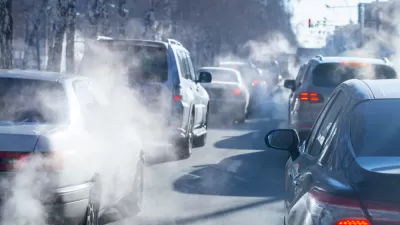
House Moves to Rescind California’s Emissions Standards
The state has been allowed to set its own emissions goals, including a mandate to transition to electric or zero-emissions vehicles by 2035.

Driving Equity and Clean Air: California Invests in Greener School Transportation
California has awarded $500 million to fund 1,000 zero-emission school buses and chargers for educational agencies as part of its effort to reduce pollution, improve student health, and accelerate the transition to clean transportation.

California Invests Additional $5M in Electric School Buses
The state wants to electrify all of its school bus fleets by 2035.

USDOT Repeals Emissions Monitoring Rule
A Biden-era regulation required states to report and plan to reduce transportation-related emissions.

Opinion: California’s SB 79 Would Improve Housing Affordability and Transit Access
A proposed bill would legalize transit-oriented development statewide.

NRDC Releases State Transportation Scorecard
The Getting Transportation Right report highlights which states are making the most progress on reducing transportation emissions and improving access to clean transportation options.

Ratepayers Could Be on the Hook for Data Centers’ Energy Use
Without regulatory changes, data centers’ high demand for energy would be subsidized by taxpayers, according to a new study.
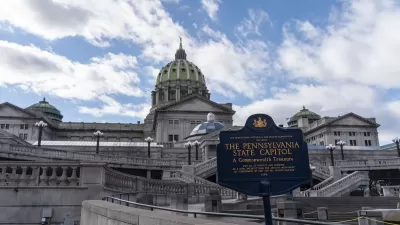
Trump Administration Unfreezes Pennsylvania Climate Funding Amidst Lawsuits
Funding for air and water quality programs still at risk.

LA’s Trees Absorb More Carbon Than Expected, But Can’t Do It Alone
A USC study finds that Los Angeles’ urban trees absorb more carbon than expected, but while they provide crucial environmental benefits, they cannot replace the urgent need for systemic emissions reductions.

California Bills Would Rein in Data Centers’ Energy Use
A series of proposed bills seeks to limit ratepayer increases and ensure data centers report their energy usage and electricity sources.

New Jersey to Consider Charging Fossil Fuel Companies for Pollution
A proposed law would make companies liable for damages caused by burning fossil fuels.

Hawai'i Researchers Tackle Climate Challenges in National Parks
University of Hawaiʻi researchers are using advanced remote sensing technologies to protect cultural resources in five Hawaiʻi national parks from climate change impacts while training students in cutting-edge environmental science techniques.

Report: 14 States Increased Per-Capita Carbon Emissions
Many of the states on the list are red-leaning states that fought against federal environmental reporting regulations.
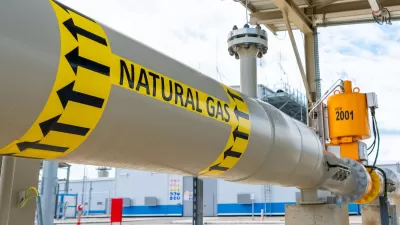
Louisiana Planning Massive ‘Mystery’ Data Center
The center would be powered by a new, 1,500-megawatt natural gas plant, which critics say will drive up emissions and contribute negatively to the region’s air quality.
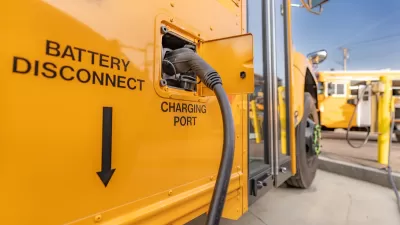
Opinion: Supporting Electric School Buses is the Right Thing to Do — and Fiscally Conservative
Why switching school bus fleets to electric vehicles is good for students, the environment, and school districts’ finances.
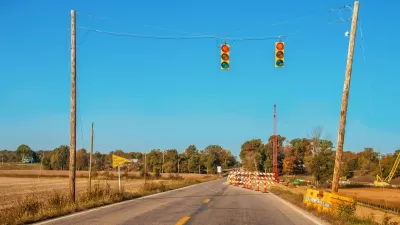
Report: Some Rural States Ahead of More Urbanized Ones in Reducing Transportation Emissions
This is a largely unintended consequence of states with lower populations and resources focusing on repairing existing roads and infrastructure rather than expanding and building new roads.

Washington Voters Keep Carbon Tax
An initiative that would have ended the state’s “cap and invest” program failed, leaving the program in place.
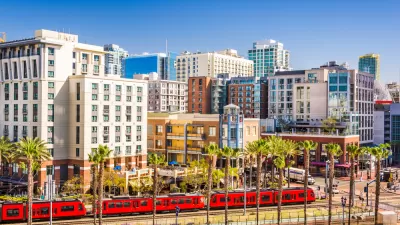
America’s 10 ‘Greenest’ Cities
A new analysis ranks cities based on their environmental quality, energy consumption and production, transportation, density, and other factors.

Baltimore Bans Gas Leafblowers
The devices release as much air pollution as driving 1,100 miles and have been banned in over 100 U.S. cities.
Pagination
Urban Design for Planners 1: Software Tools
This six-course series explores essential urban design concepts using open source software and equips planners with the tools they need to participate fully in the urban design process.
Planning for Universal Design
Learn the tools for implementing Universal Design in planning regulations.
Heyer Gruel & Associates PA
JM Goldson LLC
Custer County Colorado
City of Camden Redevelopment Agency
City of Astoria
Transportation Research & Education Center (TREC) at Portland State University
Jefferson Parish Government
Camden Redevelopment Agency
City of Claremont


































